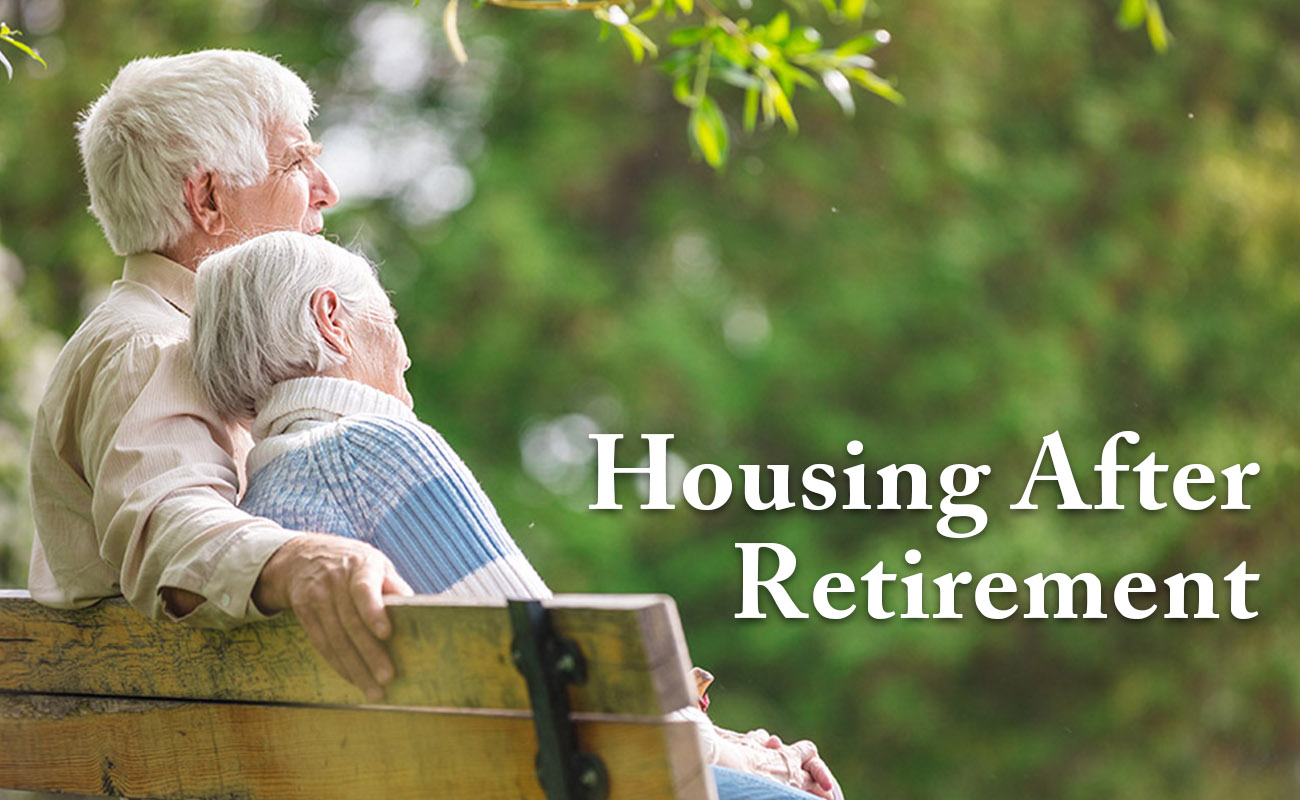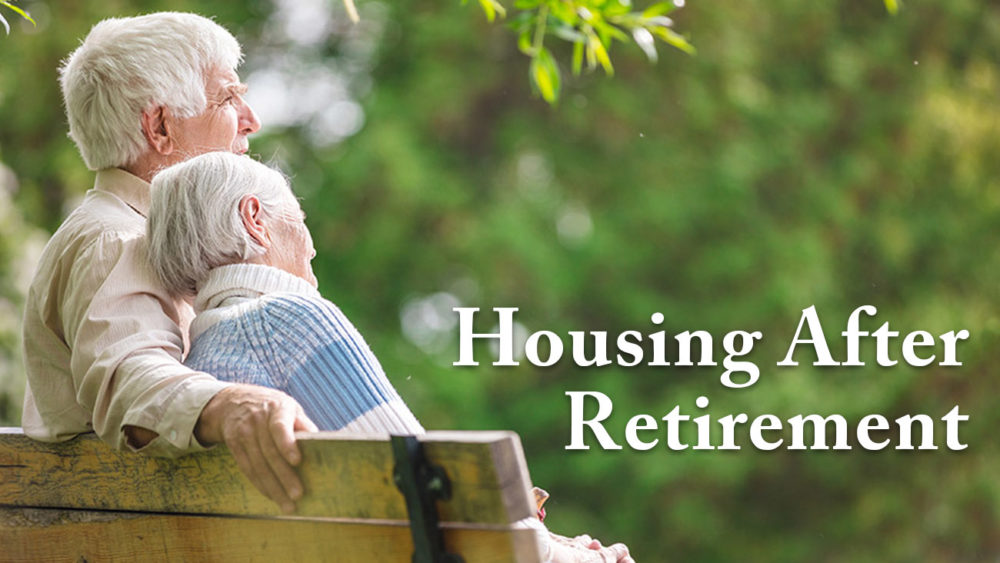
Planning for Housing After Retirement
When you are ready to take the step into retirement, that are many things that are important to consider. One of these things may be real estate. Here are some things that you may want to take into consideration if/when you are in this situation.
1. Is it in the right area?
You will no longer need to be concerned with whether or not your home is in a good school area so you may want to pay attention to other features that may be more important to you. You might want to stay in your same community, to be close to the people you know well, or you may want to move to a warmer climate.
2. Is it the right home?
You need to make sure that your home not only suits your current needs but also your future needs. Consider your current lifestyle, and whether or not you’ll be continuing that lifestyle in the future. If you frequently entertain, you might want to consider a home that has more space. You may also want to consider a larger home if you plan on having your children and grandchildren stay overnight. If you still plan on working part-time, you may want a room that can be used as an office.
3. How will a monthly mortgage payment affect your retirement budget?
Before purchasing, you should consider how getting a new home will affect your retirement cash fund. Often times, homeowners will rely on thirty-year mortgages, especially because they have low payments. However, this can mean that you would be responsible for monthly payments for the majority of your retirement. Make sure you know how your budget will be affected by these costs. If you’re moving from an expensive apartment in the city to a smaller suburban home, you may experience a smaller mortgage payment. You don’t want your mortgage to hinder your ability to pay for your other wants and needs that you may experience during retirement.
4. What additional housing costs could you incur?
You will be able to take advantage of the tax write-offs that are allowed, so when factoring this in you can save money owning instead of renting in some instances. When owning a home, the costs for repairs and upgrades is on your back. These costs may cut into your budget. If this presents a problem, buying an older house might not be for you.
5. Can you qualify for a mortgage during retirement?
Annual income typically drops dramatically for retired people, which can make it more difficult to qualify for a new mortgage. However, it is illegal for lenders to refuse to lend money because of your age, but they can deny a loan if the income you make in retirement doesn’t satisfy your monthly debt obligations along with new housing payment. It is recommended to explore refinancing options for your new or existing home prior to retirement to avoid any issues arising from a drop in income when you retire.
What about a reverse mortgage?
A reverse mortgage is a home equity loan for older homeowners, and it doesn’t require monthly mortgage payments. The loan is repaid after the borrowers moves out or dies. These are often considered a last-resort source of income for seniors who are aged 62 or older, who own homes outright, or have small mortgages. In addition, you must use the home as your primary residence.
A reverse mortgage works for people who don’t plan to move, can afford the cost of maintaining their homes, and want access the equity in their home to help supplement their income. In a reverse mortgage, the bank makes payments to the borrower based on a percentage of accumulated home equity. The money that a retiree obtains from using a reverse mortgage can be used to pay for health care expenses, pay off debt, or cover the costs of home improvement.
Some factors that influence the amount of funds you are able to receive in a reverse mortgage:
- Age: if you are still married, the age of the youngest spouse is taken
- The value of the home
- Your interest rate
- The lesser of the appraised value or the HECM FHA mortgage limit of $625,500
After retiring, you have many options regarding your living situations. Whether you decide to stay in the home you live in now and take out a reverse mortgage or find a new house, there are many options for you and help for you along the way.


Comments are closed.